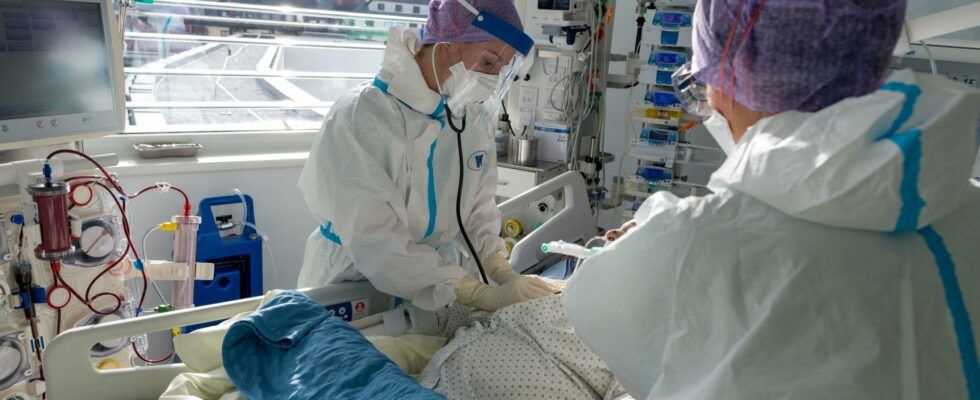Since the pandemic began, more than 105,000 Tyroleans have been infected with the corona virus. Five to ten percent of those symptomatically infected then suffer from Long Covid. Doctors Judith Löffler-Ragg and Raimund Helbok talk about the burden after the illness.
Actually, the lung specialist Judith Löffler-Ragg and neurologist Raimund Helbok from the Innsbruck clinic should have answered questions from the audience at the health talks of ORF and “Tiroler Krone” these days. The lecture is canceled for known reasons. But the topic is very topical. Six questions and answers about Long Covid: “Krone”: Who is particularly at risk of contracting Post Covid or Long Covid? Helbok: According to specialist literature, it is basically five to ten percent of corona patients. These observations mainly relate to patients in inpatient treatment. Löffler-Ragg: The good news: According to current data, anyone who had no or only mild symptoms during the course of the infection does not have to fear any long-term consequences and has a low risk of long covid. People with a severe or highly symptomatic course are more likely to have symptoms beyond 28 days. We are not only talking about older patients here. In a study by the Innsbruck Medical University on the long-term consequences of Covid-19, we specifically asked those who had cured the viral disease at home. The average age was 44 years. That coincides with international data. Here we are talking about people who are in the middle of their working life and can be very limited for months. The symptoms are sometimes very unspecific. What defines Long Covid? Löffler-Ragg: A pattern of symptoms is confirmed for us. Those who are more severely affected experience fatigue, shortness of breath, rapid heartbeat, circulatory disorders, and a range of neurological symptoms. Anxiety disorders and depression are also often mentioned. However, it is still unclear what the result of the viral disease, the worsening of an existing disease or the result of the pandemic circumstances. Helbok: The neurological symptoms mainly include memory and concentration disorders, often referred to in public as “brain fog”. There are also reports of sleep disorders, headaches, odor and taste disorders or muscle pain. Can odor and taste disorders also remain permanent? Helbok: On average, it lasts two to three weeks. But there are also patients who complain about it months or a year after the illness. Long-term data are still missing. We assume that five percent of symptomatic patients are affected in the long term. But we also know that basically 20 percent of the population have odor disorders. Some only notice this when they have Covid 19 disease, and every disease is exhausted. How does the doctor recognize that there is more than the usual weakness after an infection? Löffler-Ragg: That is the challenge. There are now guidelines for general practitioners. The exhaustion after the acute infection can last up to four weeks, but should improve from week to week. If there is no improvement or if it deteriorates, the family doctor first clarifies any organic impairments.Helbok: The family doctor is the first point of contact. Or a specialist if patients are already receiving treatment. The rule of thumb is: If symptoms persist for more than three months, it is time for a detailed assessment. This requires an interdisciplinary approach. Often there are complex symptoms that affect several organ systems. Does this also apply to Long Covid: vaccination protects? Löffler-Ragg: Absolutely. If you get infected despite being vaccinated, the risk of long covid is reduced by half. What is the treatment and what about the rehabilitation options in Tyrol? Helbok: We have multidisciplinary diagnostics and individual treatment. In a general Long Covid outpatient department, it is difficult to provide specialized therapy. Here, too, the family doctor is the primary contact. He will then refer to the respective specialist. Löffler-Ragg: Of course everyone would wish that they could just take a tablet – and in two days it will be over. The variety of symptoms and a lack of knowledge about the cause make drug therapy difficult. We have outpatient or inpatient rehabilitation for this. More than 800 patients have been rehabilitated in Tyrol since the beginning of the pandemic. The health system is increasingly adapting to requirements. 27 specialists have compiled relevant information on symptoms, treatment, contact points and prevention relating to the phenomenon of long covid on the new website www.postcovid.tirol.
source site-12
